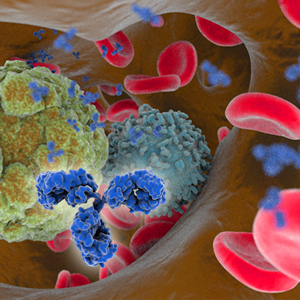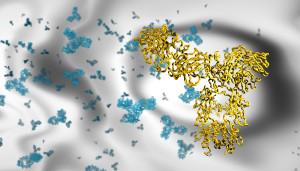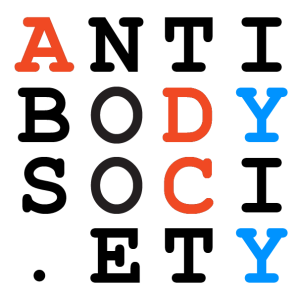 On May 1, 2017, the US Food and Drug Administration (FDA) granted an approval to the anti-PD-L1 antibody durvalumab (IMFINZI) for the treatment of patients with urothelial carcinoma, and FDA approved a complementary diagnostic, the VENTANA PD-L1 assay, for assessment of PD-L1 protein in suitably prepared urothelial carcinoma tissue. Durvalumab’s license application received accelerated approval, priority review, and Breakthrough Therapy Designation from FDA. The approval was based on one single-arm trial of 182 patients with locally advanced or metastatic urothelial carcinoma whose disease progressed after prior platinum-containing chemotherapy. An ongoing clinical trial to confirm the clinical benefit of durvalumab must be completed to fulfill the conditions of the accelerated approval.
On May 1, 2017, the US Food and Drug Administration (FDA) granted an approval to the anti-PD-L1 antibody durvalumab (IMFINZI) for the treatment of patients with urothelial carcinoma, and FDA approved a complementary diagnostic, the VENTANA PD-L1 assay, for assessment of PD-L1 protein in suitably prepared urothelial carcinoma tissue. Durvalumab’s license application received accelerated approval, priority review, and Breakthrough Therapy Designation from FDA. The approval was based on one single-arm trial of 182 patients with locally advanced or metastatic urothelial carcinoma whose disease progressed after prior platinum-containing chemotherapy. An ongoing clinical trial to confirm the clinical benefit of durvalumab must be completed to fulfill the conditions of the accelerated approval.
Durvalumab is the sixth antibody therapeutic to be granted a first marketing approval in any country so far in 2017, and the second human IgG1 anti-PD-L1 antibody therapeutic to be approved by FDA in 2017, following the approval of avelumab (Bavencio) for Merkel cell carcinoma in March 2017. It is also the second anti-PD-L1 antibody therapeutic to be granted an approval for urothelial carcinoma, following FDA’s approval of atezolizumab (Tecentriq) in May 2016.
The Antibody Society maintains a comprehensive table of approved antibody therapeutics and those in regulatory review in the EU or US. As of May 1, 2017, marketing applications for a total of 9 antibody therapeutics that have not been approved in any country are undergoing review in the EU or US. In addition, marketing applications for sarilumab, which is approved in Canada, and gemtuzumab ozogamicin, which was FDA approved in 2000 and subsequently withdrawn from the US market, are undergoing review in the EU and US.
Please log in to access the table, located in the Members Only section.
Not a member? Please join!
Membership is free for employees of the Society’s corporate sponsors.




